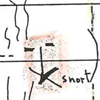Leaderboard
Popular Content
Showing content with the highest reputation on 12/23/2012 in all areas
-
More often than not, these kinds of associations are tiring for me (and tend to reveal how dull people are), not that there is anything wrong with the music of Debussy creating images of fauns and the body of music written in the last 100 years homogenously sounding like "people getting murdered". I think people desperately try to find something that music reminds them of, as if every piece of music written needs to be something else in addition to music. For me, I interpret kinds of energies from music. These energies can't really be properly explained: it's a visceral feeling.3 points
-
Better to look at the silver lining: you're among the first YC members (if not the first) of whom a lesser composer writes style-copies ;) .2 points
-
I'mnot sure if you're new to the Internet or forums in general, but that's not how it works, I'm sorry. The "report" button does indeed exist, but it's meant for egregious violations such as the posting of sexually explicit content, hate speech, or graphic violence. It doesn't have anything to do with people mocking you. If by mocking you mean criticizing you and your works, and you are unable to take criticism even in a mocking sense, then I would suggest that you do not pursue composition because a.) you will never improve and b.) you will be offended by every single one of your teachers. It's possible maybe that in your culture you are brought up in such a way that you're told that you are special and that you're a musical genius, but you shouldn't expect to be coddled like that in the real world. If you're being mocked, it's for a reason. If you fix that in your music, boom, you won't be mocked anymore. Good luck!2 points
-
I have a couple of problems with the many weird assumptions that has been made by the creator of this topic. First of all he talks about dissonance in music as perceived by a select group of people that existed hundreds of years ago as being the only correct one and all others as being unnatural or false when people of almost any era have differing views on consonance and dissonance that do not correspond with this one period in history (baroque). The fact is that the "hundreds of years of tradition" do not narrow down to one single use of consonance and dissonance. Composers before the baroque era had many differing views on the subject, as did the composers that followed, and these ideas were constantly evolving throughout the baroque era itself. Even composers in the same era didn't necessarily always agree on everything when it came to the treatment of music (Bach wasn't the only composer in the baroque era, you know). The assumption that one treatment of consonance and dissonance remained "standard" throughout the entire history of western culture or even began anything like how it ended up is simply false. Also the creator of this topic talks about "tension" in music and that a resolution of this "tension" as defined by baroque musicians is consistent with the "laws of the universe", when in reality, the laws of nature and the galaxy/universe do not seem to agree. Take for instance something I had noticed on a hike in the mountains that I had recently taken. I noticed that the wind was whistling through the hollow of a nearby tree creating an A flat/G sharp (approximately). I also noticed another tone coming from somewhere nearby (I couldn't distinguish exactly where from) creating a B flat/A sharp (approximately). This, of course, creates an apparent major second to the human ear which, by baroque standards, would demand resolution. And yet, nature made no attempts whatsoever to resolve this apparent "dissonance." The hollow of the tree neither extended nor contracted to change the interval to a unison/octave/fifth/third/sixth or any other interval of any kind. The other nearby whistling also made no attempts to adjust its pitch to "resolve a dissonance." According to the OP, the laws of the cosmos should have intervened to resolve this apparent "tension", and yet if I went on this same hike on a windy day today, tomorrow, or two years from now the same dissonance would occur without any resolution nor any attempt for resolution (barring human or animal intervention or some natural disaster). The truth is that the universe/galaxies/cosmos/nature does not care about dissonance and consonance in music and these entities never have and never will demand resolution when it occurs. Many sounds in nature will create a perception of dissonance without any attempt to "resolve" itself. This perception of dissonance and consonance is one of humans and possibly some (but most definitely not all!!!) animal species. The apparent "tension" in music is simply a perceived one and does not actually exist in the natural world. In addition, in order for his theory on "natural" dissonance and consonance to make any sense, there would have to be nearly complete conformity amongst most all people in all circumstances, thereby showing some possibility of proof for an inherent "rightness" of consonance as perceived by baroque musicians. The actual fact of the matter is that the vast majority of people (not just in this time but throughout history and probably extending forever into the future) always have and always will perceive consonance and dissonance differently depending on context. Jazz quite commonly uses the same major and minor scales that have been used throughout the history of western music (in addition to some others, like the whole-tone, octatonic, and blues scales). In jazz, the chord of resolution will commonly have an added sixth, seventh, and/or ninth, and yet most people hear a resolution (not just some small portion of the population). These added tones on the chord of resolution also occur fairly frequently in all sorts of contemporary styles including pop/rock/alternative/etc. and yet most people accept it as resolution and a convincing ending with no perception of it being "unfinished" and no further desire for resolution. In fact, in most blues and a great number of jazz pieces, most people would hear a piece ending on a simple triad as being strange or "all wrong" and more "unfinished" than a seventh chord (suggesting that the simple triad has more tension than relaxation in this context), even if this piece was played entirely in the common major and minor modes and used no other scale. Most people can also hear tension and relaxation in many pieces written using 20th century techniques and find the ending to be quite convincing without any need for further resolution. Also, people can very commonly hear the "retrograde" progression in pop music (I-V-IV-I) as a completely convincing ending. The creator of this topic says that pop music is mostly fine and yet most pop will use this retrograde progression as a cadence quite frequently and this would practically never occur in baroque music. In spite of this "unacceptable" progression occurring so frequently, no one hears this as any sort of a problem. I also feel like this topic tends to assign some ridiculous sense of "morality" to music that doesn't really make any sense. For one thing, most people perceive beauty quite differently and (quite contrary to the OP's belief) it does not conform completely (or nearly) to the ideals of any single era for the vast majority of people for now and throughout history. The vast majority of music today has no desire nor intention to "glorify God" and it most definitely has no care about SimenN's sense of musical morality nor any intention to conform to some made up need for resolution from the universe/nature/etc. since natural laws do not make any attempt, whatsoever, to actually correct dissonance when it occurs. Most music today (and almost all secular music throughout history) was intended for expression and only expression. Overly-diatonic music rarely accomplishes this goal satisfactorily for the vast majority of people after the middle of the classical era and so there is no need nor desire on behalf of most musicians as well as consumers to conform to any bizarre need to avoid chromaticism and/or atonality. In fact, baroque music is not actually currently popular with the vast majority of western civilization. In fact, a great number of people now can find it quite unsatisfying or even boring (not me, but many). You should use the melody/texture/chord progression/rhythm/instruments/compositional methods that you as an individual feel accomplishes the goal to express exactly what it is that you desire to express. Any opinions that someone is "doing it wrong" has no ground in actual fact. Tradition is also a ridiculous reason to follow any preconceived notion of what music might be "correct" since (as I've already demonstrated on most of these topics): there is no "natural law" that the universe/galaxies/cosmos/nature follows for the treatment of consonance and dissonance and any opinions on that are simply OPINIONS and have no ground in fact; most eras in history and sometimes the people in any individual era disagreed on these concepts; most individuals find importance, resolution, and beauty in all kinds of music composed using all kinds of different compositional methods and styles; and "everyone else has done it this or that way" (or, in other words "everyone is doing it") is a very silly reason to do anything. Just because a bunch of people do/did something doesn't mean that it is correct or even desirable. Vast groups of people have been wrong and continue to be wrong, that's just how it is and always will be. I would never want to imply that writing in a past style is ever wrong, though, depending mostly on the composers intentions. I'm simply trying to say that there is no "right" or "wrong" when it comes to composing. BTW, SimenN, a great many colleges and universities in the United States teach chromaticism as a standard part of music theory and 20th century techniques as a standard requirement for most degrees in music. So, telling someone to "go ask your teacher" will not necessarily have the affect that you desire since most qualified music educators will have studied chromaticism as well as post-tonality and would only agree to baroque standards of what is or is not acceptable (in regards to use of chromaticism and atonality) when referring to that particular time in history.2 points
-
SimenN, don't forget that a long time ago an interval of third was considered a dissonance. In 16th Century music, any chromatic note was considered a tension and suspended intervals as well. The triads were not used as a tension and there weren't any I-IV-V relations as well. Only final cadenza had a tonality-like ending. So imagine the reception of people, when first dominant seventh chord was used, with it's "brutal" dissonance of the interval of seventh. Your beliefs are too naive so I'd suggest you start to write simple pop music and have your philosophies fully deployed there. Like it or not, the music of Debussy, Ravel, Berg, Shostakovich, Lutoslawski, Messiaen, Stravinsky and other "dissonant" composers will live on, like it or not. If you intend to make any impression in the field of contemporary classical music, you will have to start thinking more broadly and expand your limits.2 points
-
There has been a lot of conversation about tension. Now let's go throughout music history: In the past, composers relied on tonality based usage of tension - chromatics resolved in logical way, in terms of stable or unstable alterations, either to enrich the tonality with modulations or simply enhancing the tension with altered chords (augmented sixth). But when we come to Debussy, he began to use dissonances as colour effect. I doubt anybody (including you, SimenN) would say that his tonic chord with added 2nd or 6th would be a tense one, even if the interval of 2nd is considered a dissonance. And Debussy's chord progression is very much surprising and does not follow "traditional standards". Would anybody berate Stravinsky and his "Sacre du Printemps" because there are so many harsh chords, which are unresolved? I don't think so. What about other great composers of 20th century who didn't use tonality? So they were out of balance, because they didn't follow "good ol'" tonality? SimonN now you should explain your usage of tension and relief throughout more or less unique musical language. Or you just defend the concept of traditional tonality in today's music which has been mostly abandoned more than 100 years ago?2 points
-
Damn Bulgarian country folk, always breaking the laws of physics!2 points
-
Other sites have the option of reporting offending content. Here I can't find such an option. So it makes me wonder whether such mockery is blessed by and/or even perpetrated by the administrators and established members of the site. If so, then I demand that my account be swiftly terminated and all my posts removed from this site, whether compositions or threads!!!1 point
-
Isn't democracy beautiful? I just submitted my votes1 point
-
SimenN. I am going to summarize this thread. Chapter 1: Ravels law You speak of a natural order. While I find that idea in itself quite old-fashioned, I have to say that Ravel did try to go along with you in the very beginning of this argument. He/She/It pointed out to you that you cannot maintain that the idea of tonality is based on the natural order of overtones, and at the same time call the tempered scale a compromise. You hide behind hollow phrases as : It is only relatively true. And I like to stretch the word "relatively" here. Because if you would play a good old Sweelinck organ piece in D minor in C# minor in stead, on an original organ, that would prove that a C#-E minor third is not the same as any minor third (like D-F). So as a D minor second resolves to a D minor third, it is different as the C# minor second that resolves to a C# minor third. This means there is no such a thing as a universal model of tension and relieve. There is nu such thing as a universal major second. Chapter 2: Sojar Sojar tries a new counter-argument: that of musical history. He tells about added 2nds and 6ths and so on, but your response is not really adequate: If I connect this to the OP praising the beauty of nature, the natural order, basically: that your musical aesthetic is derived of a Renaiscance-concept of physics, the quote above boils down to: color is unnatural. Yeah, right. Creation with too much color is not as the creator intended it... Sorry, I got carried away and my cynicism took over. ;) For the sake of argument I could go along with you for a little and agree that tension should be relieved. But as you speak of the tools (chromatism, passing notes, tention to be relieved) of a composer: pitch is not the only way to relieve tension, nor is tonality the only scheme that brings order to define the interrelationships of pitches. I'd like to progress along this thought proces but in opposite direction. Check Machaut: http://www.youtube.com/watch?v=1Y1O-BcZQwY And I'd like to point out the cadencial figures; lets take the finale cadence of the first part at 1:07. It is not authentic (V), it is not plagal (IV). The chord E-G#-C# resolves to D-A-D. There is clearly resolving the tension but in a non-baroque way. What would you say of this? When compared to the baroque ideal it is rather odd to use vii-6 as the dominant. But compared to you ideal concept, Marcaut is equally different with say a Bartok that uses the tritone in dominant function (NB note the prominent use of the G# in this example) Chapter 3: God and atonality I am a christian that writes unblanced music, should I worry?! Am I posessed? Maybe we should call it Entartete Kunst, becuase, I am clearly gone astray... Obviously my cynical counterpart kicks in again... My conclusion so far Frankly, it scares me to read stuff like this. This is so close minded, and I think this thread shows from the part of Simen an unwillingness to prove his point by arguments, gives no proper response to counter-arguments, does not seem willing to try to walk along a certain path of thought for the sake of argument.1 point
-
Ah, those ones. Silly me, I was thinking of the scientifically proven laws like the laws of motion, matter/energy conservation, etc.1 point
-
Those made by God (in close coordination with Buddha, Allah and Robert Plant).1 point
-
There seems to be a confusion here equating tonal/atonal with consonant/dissonant. There are plenty of dissonances in tonal music, in many cases there are more than there are in some atonal works. In tonal music, tritones occur at most cadences; minor and major 2nds occur horizontally as passing notes, auxiliary notes, appoggiaturas and vertically, along with 7ths and 9ths, as suspensions, retardations, anticipations, etc. Dissonance is fundamental to tonal music. Likewise, consonance is often fundamental to atonal music. Take this example by that hack, Ligeti: In that piece, the left hand plays an ostinato consisting of the first tetrachords of a C major scale and an F# major scale. Not really harshly dissonant at all but the fact that the two tetrachords are a tritone apart keeps the key ambiguous. The right hand plays major, minor and diminished triads. The triads are from many different keys so an overall key is never established for the piece. The piece is absolutely loaded with consonance yet it is atonal. You can't really make a case for the inferiority or superiority of modern music based on the level of consonance or dissonance. And I don't see why we have to follow nature's example when composing music. Nature sucks at making music. All the best music I've ever heard was composed by people.1 point
-
I smell this topic winning a 2013 award as the most controversial one.1 point
-
That was poetically sentimental and all, but your subjective perception of tension, "physics" in music and metaphorical gravity is just that: your subjective perception. There are no universals. No music is objectively any more "organic" or "natural" than any other: this makes as much sense as saying the color 'grey' is more organic/natural than honeydew (the fruit). Accept it or not :)1 point
-
Actually, very little music is based on real atonality. Most of music, even if dissonant, has a central pitch or something which would provide some "relief". And indeed the word "dissonance" means a lot more than just a vertical base of other intervals than thirds, fifths, sixths and octaves.1 point
-
1 point
-
Well, actually... lol. And, btw - I have 8 voters submitted. let's RAMP IT UP PEOPLE1 point
-
if p, then q p p pppppppppppppppppppppppppppppppppppppppp therefore, q1 point
-
So you concede then? Or are you simply going to deny that equal temperament itself is a deviation from what is natural (therefore "dissonant" as you have proposed above)?1 point
-
Right. A compromise to what is found in nature. Unnatural.1 point
-
Any acoustical theories about music produced by real instruments must take into account timbre and register. Interval classes are an abstraction, and we receive the rules governing counterpoint, etc. by tradition. Also, as Schoenberg observed, consonance/dissonance form a continuum, rather than a strict dichotomy. Furthermore, context is important in governing whether an interval feels dissonant or not1 point
-
What is dissonance even, to begin with? And you say cultures "learn" to view dissonance as natural. You're implying that all people at birth think view your perception of dissonance to be "natural" and then through exposure, defy this?1 point
-
You're contradicting yourself: first you said that there is an idea of "universal" consonance and dissonance which different cultures either adhere to or ignore. Now you're saying that the idea of dissonance and consonance are relative?1 point
-
I only ever use I, vi, IV, and V (in that order). No flats1 point
-
What is "natural" music? What is "unnatural" music? Have you ever heard a major triad repeated in periodic durations out in nature?1 point








